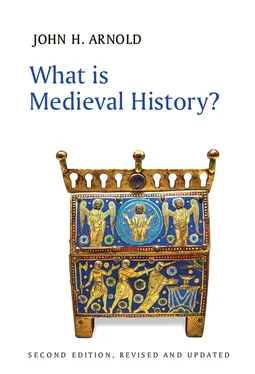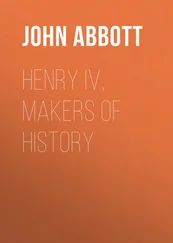The kings without any authority, the nobles without any constraint, the peoples enslaved, the countryside covered with fortresses and ceaselessly ravaged, wars kindled between city and city, village and village … all commerce and all communications cut off … the grossest ignorance extending over all nations and all occupations! An unhappy picture – but one which was only too true of Europe for several centuries. 4
As the last century of study has amply demonstrated, Turgot’s caricature of the middle ages is grossly distorted. But its spirit continues to reside: we, no less than Enlightenment philosophes , tend to look down as we look back, feeling at a gut level that something from the middle ages must be basic, crude and probably nasty. They believed the earth was flat, didn’t they? (No, that’s a later myth.) They burnt witches, didn’t they? (Not very often, that was mostly in the seventeenth century.) They were all ignorant, weren’t they? (No, there is substantial intellectual culture visible in Carolingian times, there were universities across Europe from the thirteenth century, and the beginnings of experimental science, among other things.) They never left home, hardly knew the world around them, right? (No, there were trade networks connecting Scandinavia, central Europe, the Middle East and North Africa.) But, surely, they behaved barbarically: constant local violence, waging wars against people they didn’t like, torturing people, executing criminals? (And none of this happens today?)
This initial, vast accretion of grime is the first veil that must be removed in order to do medieval history seriously. Put aside preconceptions about the period: some may have elements of truth to them, but they must be treated as a matter for investigation, rather than a foundation. The middle ages were what they were – the many things they were – rather than only the summed ‘failures’ of future ages’ expectations. The medieval was not simply the opposite of what is deemed ‘modern’; it was something much more complex, and, as we will see, something still interwoven with how we are today.
The second veil to be penetrated is bestowed by the politics of medievalism. The middle ages have frequently been an object of ideological struggle, even when being disavowed. Thus, for those fifteenth- and sixteenth-century Italian humanists who condemned the preceding centuries to ‘darkness’, a major consideration was the desire to deny any continuity between the old Roman Empire and the medieval Holy Roman Empire – because of the legitimacy this would confer on the existing Holy Roman Emperor. For the Enlightenment philosophes , a major factor in denigrating the middle ages was its apparent religiosity, in thrall to the command of the Catholic Church: something against which the defenders of Reason, in the eighteenth century, continued to struggle. The nineteenth century brought, in several European countries, a more positive attitude towards the medieval: France, for example, fell in love once again with chivalry, while Germany looked back to a powerful combination of law and empire, and England glowed with quiet pride over its long history of parliamentary constitutionalism. But these reinventions of the medieval were also political, informed particularly by different strands of Romantic nationalism. Because of events in the mid-twentieth century, we tend to see this as most poisonous in Germany, and certainly German historiography in the nineteenth century sought the roots of its Volksgeist in the medieval past, and looked back to the ‘glory days’ of the Empire. But it was a weakness to which every European country was prone, and while the medievalisms that it fostered varied according to nationality, they shared the tendency to romanticize, mythologize and simplify the medieval past.
This is not to say that this reappropriation is all that the nineteenth century gave us. General histories of modern historiography tend to talk of a ‘revolution’ in historical method in the nineteenth century, associated particularly with Leopold von Ranke (1795–1886) and German historiography more broadly. While there are reasons for being suspicious of some of the claims made by and about Ranke with regard to how revolutionary the use of primary archival sources actually was, 5it is definitely the case that the foundations of modern, academic history were laid by Germany in the nineteenth century, and that a focus on archives and source analysis was a primary part of this. Some version of Rankean historiography informed the creation of academic history teaching, and subsequently postgraduate training, in France, Italy, England, the US and elsewhere. As various writers have shown, it was rare that the adopters of von Ranke’s ideas understood them quite in the way he intended: they tended to reify the notion of a ‘scientific method’ in an unwarranted fashion, and failed to see the abstract, spiritual element in Ranke’s call for the historian wie es eigentlich gewesen ist (‘only to show what actually [or, more accurately, ‘essentially’] happened’). 6Moreover, while Ranke had broad interests in the Renaissance and Reformation periods, his followers tended to restrict their focus to high political history, based on study of governmental archives, which meant that pre-existing interests in social and cultural history were sidelined as rather ‘amateurish’ pursuits.
In England, in particular, the professionalization of history over the course of the late nineteenth and early twentieth centuries was played out in the study of the middle ages. This partly followed the German example – in both countries, it had been medieval records that formed the basis for the great series of edited sources, the Monumenta Germaniae Historica (begun 1826) and the Rolls Series (begun 1857) – but also reflected both an English pride in its long constitutional history, and an English abhorrence for current political argument. The middle ages, it was felt, was a suitably distant period for university study, unlikely to lead to unseemly debate and dissension among modern undergraduates. For Oxford and Cambridge, in the pre-war years, medieval history was political precisely by dint of being apolitical: no current religious debates or party political issues to cause upset, and hence a suitable arena of study for the developing minds of the Empire’s future administrators. A succession of Grand Old Men of English medievalism is associated with both universities in the late nineteenth century, but none of them is now read for any present insight. They excluded from their middle ages anything that unbalanced the smooth progress of the ship of state; assumed rather than analysed the case for English ‘exceptionalism’, thus furthering England’s tendency to look inward rather than outward; and a thick blanket of social and political complacency slumps suffocatingly over their prose. The interesting research and teaching were being done in London and Manchester, by figures such as A. F. Pollard and T. F. Tout; and the most exciting work was by a scholar of law, rather than history, F. W. Maitland. 7Maitland is still worth reading today, for while later research has corrected some of the details of his work, his sensitive understanding of law’s structural relationship to society continues to inspire. 8
The next ‘revolution’ in historiography also had a strong medieval element, this time in France. Lucien Febvre and Marc Bloch, two graduates of the École normale supérieure, had a new vision for what history could become. The perspectives associated with the pair have become known by the title of the journal they founded: the Annales . Febvre’s work concerned the early modern period, but Bloch was a medievalist. They wanted to broaden the horizon of historiography, free it from the pursuit of factual political narrative and explore instead the fields of geography, society, culture, even the psyche. Strongly influenced by sociology and anthropology, Bloch’s vision of the middle ages was complex and panoramic. His two-volume Feudal Society attempted to construct an analysis of the period, changing over time, that emphasized structural connections that ran vertically through all of society. Scholarship has moved on here in various ways, and (as we shall see in Chapter 4) arguments about the nature of feudalism have altered considerably since Bloch’s day; but his attempt at writing a complete history, sensitive to all parts of the medieval landscape, remains a solitary beacon. Bloch’s other great legacy was his book on historiography, Apologie pour l’histoire, ou Métier d’historien (published posthumously and translated into English as The Historian’s Craft ). Despite being unfinished – Bloch, a member of the French resistance, was still writing it when murdered by the Gestapo in 1944 – it continues to provide a brilliant introduction to doing history. 9
Читать дальше




